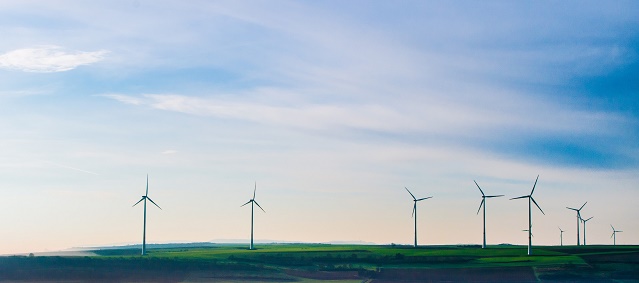

Environmental issues
Tรฉmata ลพivotnรญho prostลedรญ
Maturita z angliฤtiny mรก i konverzaฤnรญ tรฉmata, na kterรก je tลeba se dobลe pลipravit. V tรฉto lekci se zamฤลรญme na Environmental issues a podรญvรกme se na vzorovรฉ ukรกzky krรกtkรฉ promluvy na toto tรฉma, uลพiteฤnรฝch frรกzรญ a doplลujรญcรญch otรกzek. Otรกzky vรกm pomลฏลพou pลi tvoลenรญ bodovรฉ osnovy prรกvฤ pro tรฉma: Tรฉmata ลพivotnรญho prostลedรญ
Jak na to?
odpovฤฤ musรญ bรฝt detailnรญ, vฤcnรก, logickรก a vhodnฤ zakonฤenรก = musรญte se ideรกlnฤ dostat k nฤjakรฉ pointฤ nebo zรกvฤru
odpovฤฤ musรญ obsahovat minimรกlnฤ 20 slov = ideรกlnฤ 5 - 10 souvislรฝch vฤt
Co radรญme my
Describe a problem that affects the environment in the area where you live.
You should say
- what the problem is
- what causes it
- and explain what you think could be done to solve it
Remember, the question asks you to talk about a problem in your local area, so don't choose 'global warming'. These topics would be better:
- Air pollution caused by traffic and factories.
- Building new roads, houses, factories etc. destroys natural areas.
- Increasing amounts of litter and household waste.
Environment and its problems
Some of the environmental problems are:
- global warming
- cutting down rainforests
- hunting endangered species โ mostly by poachers
- pollution
Explain what is the Greenhouse Effect:
This process is natural for the Earth. It prevents heat from escaping into the atmosphere. The problem is, that human activity makes this process too intensive. Our civilization produces greenhouse gases (freons, water vapour, methane, carbon dioxide), which are let into the atmosphere in too big amounts. The effect is made stronger and our planet warms up, which results in global warming and climate changes.
There is an ozone layer around the Earth which protects us against ultraviolet rays. The layer is getting thinner because it is damaged by freons. As a result, we are endangered by UV rays which can cause skin cancer and other diseases.
How can we contribute to environmental protection?
- in households: we should: save water in our household, use environmentally friendly detergents, save electricity (turn off the lights when we are not in a room), use economical bulbs, recycle rubbish: there are special containers with a specific colour for plastic, glass and paper; we can put the biological waste into a normal container
- in the street: we should use public transport (public buses, trams, trains, underground, trolley buses) , use ecological fuels: gas, electricity, unleaded petrol , we should go on foot or by bicycle
ย
Energy
At the moment 94% of the worldโs energy comes from fossil fuels. One
possibility is nuclear energy - but after the Chernobyl disaster in 1986, many
people think nuclear power isnโt safe and they are for "green" solutions:
- Wind energy
- Solar energy
- Wave energy from the sea
- Geothermal energy from hot rocks under the earth

ย
ย
The environment is all around us. It consists of the water, the air and the earth. However, people don't always care for the environment as they should. But environment is very important for our health. New civilization gives us many advantages but its products also pollute and damage the environment where we live in. Pollution affects air, water, land, forests, people, animals and plants.
One of the biggest problems is air pollution. The air is needful for life - not only for humans, but also for animals and plants. But it's very polluted, especially in large cities and in areas with concentrated industrial production, for example in refinery towns. Air quality is spoiled by eimissions from cars and factories and by burning coal and oil.
The problem is that when we breathe polluted air we are ill much more often. And some kinds of animals and plants are dying out.
People should try to use alternative sources of energy, such as solar, water or wind. There are more ways to reduce air pollution caused by road traffic. First of them is to support public transportation.
But there are still factories that don't pollute only the air, but also the ground and water. All organisms need to drink. We cannot survive without water. And there is less and less drinkable water on the Earth. It's polluted by waste of chemicals industries, and chemicals used in agriculture, waste of ships and acid rains.
Acid rain is another point I'd like to speak about. Gases like sulphur dioxide and nitrogen dioxide are produced by power stations and cars. This gases mixes with water in clouds, and this makes the acid rain, which damages rivers and trees.
But in some parts of the world trees are not killed by pollution, but by people. Tropical rain forests are being burnt and cut down because people need more land for agriculture. But trees are very important for our life because they absorb carbon dioxide from the air and give out oxygen in return. This process is called photosynthesis.
When there is too much carbon dioxide in the atmosphere we call it the GREENHOUSE EFFECT. It caused the global warming because heat comes down to Earth and then cannot escape to space. It is caused by pollution in the air with dangerous gases such as carbon dioxide. There is a danger of changing weather and rising sea levels as glaciers melt.
Another problem is destroying the ozone layer. The ozone layer is very important, because it protects us from ultraviolet radiation from the sun. Scientists discovered that there are holes in it caused by use of some chemicals, ozone damaging gases such as freons used in aerosols, refrigerators and car air conditioning. UV causes damage to the DNA of cells and various cancers.
There are some organizations which actively work to protect the environment. The most famous is Greenpeace, which fights against pollution and the use of nuclear energy in industry and protects oceans, forests and animals.
Maybe I can wrap it up by saying a few words about HOW TO BE GREEN: But everyone of us can do something to protect the environment. There are a lot of small things that can help. For example, we should swich off lights, turn down the central heating, insulate our houses, reduce packaging of goods, re-use items instead of buying new ones, and recycle to reduce waste. We also should use unleaded petrol, public transport or bicycle, take showers instead of baths, don't waste water or electricity or grow plants and trees.
There are many other things we could do better. We must think of future generations.
ย
20 otรกzek na tรฉma Environment
Zkuste si v rรกmci pลรญpravy odpovฤdฤt na nรกsledujรญcรญ otรกzky a pouลพijte vลกe, co jste se dovฤdฤli v pลedchozรญch lekcรญch:
- What are some forms of alternate energy?
- What do you think is the best form of alternate energy?
- Do people in your country protect the environment?
- How do people damage the environment?
- Is there a lot of pollution in your country?
- Name one simple way people can help prevent pollution.
- Name one way lots of people waste energy.
- Do you recycle? What do you recycle?
- Name an effect of pollution.
- What is global warming?
- Some people think that global warming is a lie. What would you say to them?
- Name one bad thing that happens to people because of pollution.
- Name one bad thing that happens to animals because of pollution.
- Name one bad thing that happens to the Earth because of pollution.
- Do you think we can save our planet, or is it too late?
- Could you live without electricity for a day?
- Could you live without electricity for a week?
- Could you live without electricity for a month?
- You see a stranger throwing plastic into a lake. What do you do?
- Your friends and you have a picnic and they want to leave the trash. What do you do?
Nezapomeลte ani na slovnรญ zรกsobu pro tรฉma Environmental issues
Procviฤte si gramatickรฉ prostลedky pro popis opakovanรฝch ฤinnostรญ a vyjรกdลenรญ frekvence v sekci Gramatiky

Kontrolnรญ otรกzky...
-
What is the best definition of the word "environment"? It ...
-
might be, but it is too general
-
well, not really
-
YES, correct
-
-
The ozone layer is being damaged by ...
-
come on! that doesn't seem right, does it?
-
definitely not
-
YES, correct
-
-
Global warning is caused by something known as ...
-
seems right, but it's NOT
-
of course, YES
-
are you kidding? :-)
-
-
When something is "harmful", it ....
-
sorry, it's the opposite of course
-
YES, correct
-
oh, come on!
-




